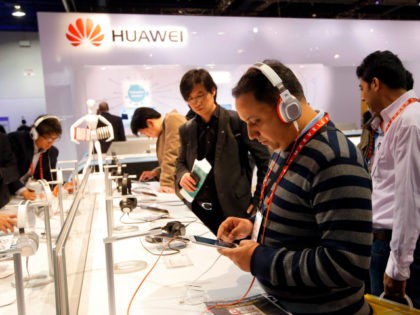FCC Bans U.S. Sales, Imports of Huawei and ZTE Equipment Due to ‘Unacceptable Risk to National Security’
The FCC announced new rules banning communications equipment from several Chinese companies from being imported to or sold in the U.S.
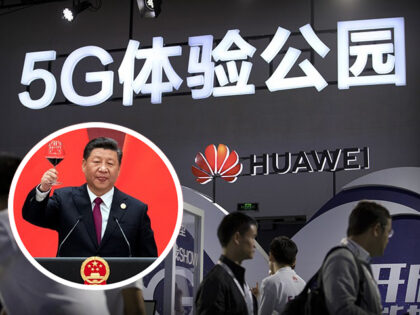
The FCC announced new rules banning communications equipment from several Chinese companies from being imported to or sold in the U.S.

Canadian Industry Minister Francois-Philippe Champagne on Friday announced a ban on 5G networking technology from Chinese telecom giants Huawei and ZTE on grounds that the hardware poses a threat to national security.
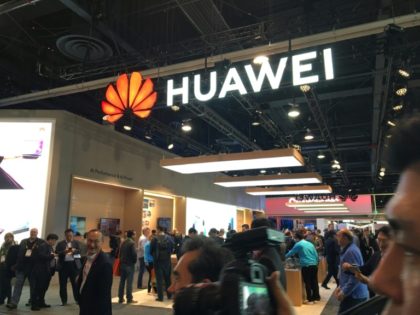
China’s state-run Global Times on Wednesday celebrated the end of Chinese telecom giant ZTE’s probation in the United States as an “inspiring” victory for Chinese Communism against the American legal system, and urged more Chinese companies to take advantage of those mercurial U.S. courts to wage lawfare against American trade policy.

China’s ZTE telecom corporation announced on Wednesday that its five-year probation from a 2017 plea deal for illegally shipping American technology to Iran has ended.
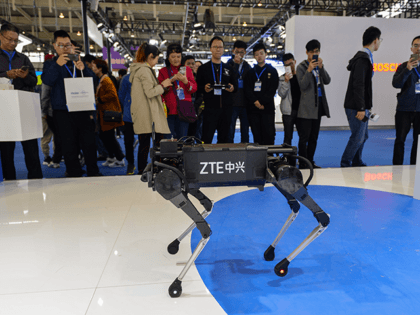
The Communist Party’s State Telecommunications Company of Cuba (ETECSA) relied on technology from Chinese mega-firms such as Huawei and ZTE to shut down nationwide access to the internet following protests on July 11, multiple reports concluded this week.
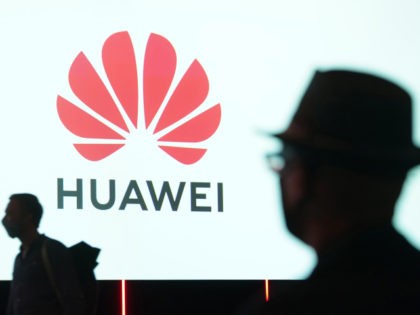
Georgia Tech professor Gee-Kung Chang faces accusations of abusing the J-1 Visa program to bring Chinese nationals into the U.S.

The Federal Communication Commission has officially declared Chinese telecom giants Huawei and ZTE “national security threats,” meaning the companies will no longer have access to federal funds to buy and install their equipment.
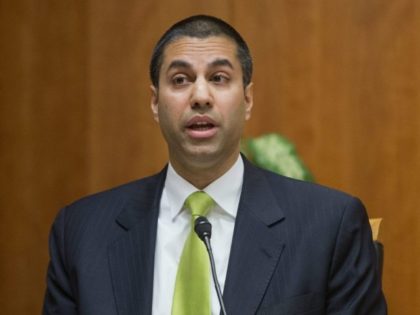
China on Wednesday accused Washington of “oppressing Chinese companies” after U.S. regulators rejected telecom suppliers Huawei and ZTE on national security grounds.
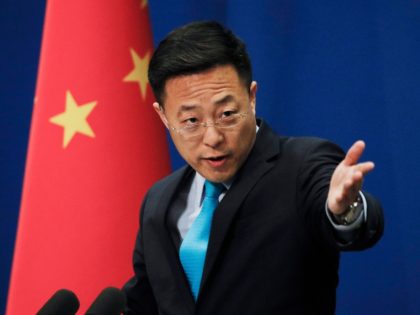
Federal Communications Commission Chairman Ajit Pai has outlined a plan for the removal of Chinese equipment from U.S. telecommunications networks, saying that it poses an “unacceptable risk” to national security, during a speech marking Pai’s most aggressive stance to date on China.
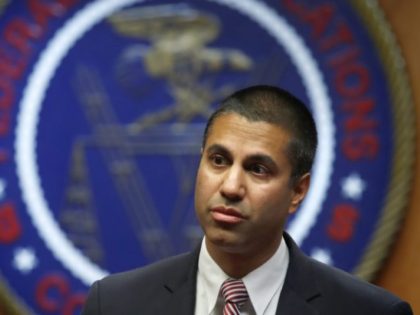
A group of prominent military veterans wrote a letter on Monday urging all American pension funds to refrain from investing in Chinese companies.
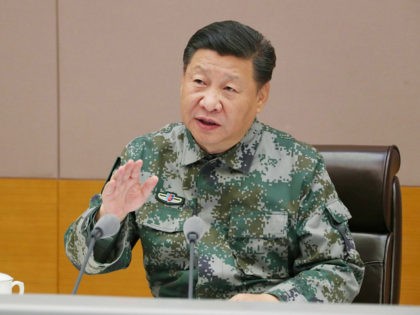
China accused the United States of waging “naked economic terrorism” against it on Thursday as Beijing escalated the rhetoric surrounding its trade war with America.
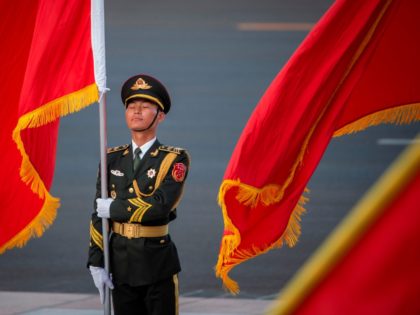
Venezuelan dictator Nicolás Maduro announced on Thursday his regime would invest “immediately” into Chinese telecommunications giants Huawei and ZTE to bring a 4G wireless network to the country, which is suffering chronic shortages of food, medicine, electricity, and gasoline under his rule.

China enlisted its telecommunications giant Huawei to build Ecuador’s former socialist President Rafael Correa a replica of its sprawling national surveillance system, helping him monitor dissidents and protect his government, the New York Times revealed on Wednesday.
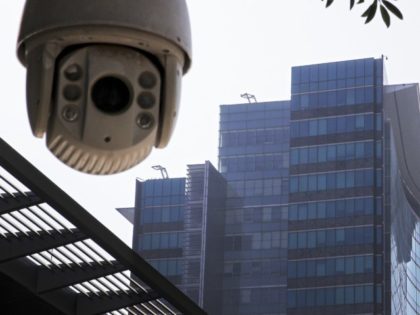
Sen. Marco Rubio (R-FL) warns countries around the world to avoid joining the “Belt and Road” initiative because “China is playing a zero-sum game internationally and willing to win at all costs.”
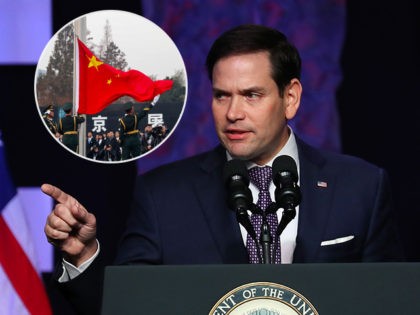
The Massachusetts Institute of Technology cut ties with Chinese technology manufacturers Huawei and ZTE this week after the US launched federal investigations into both companies.
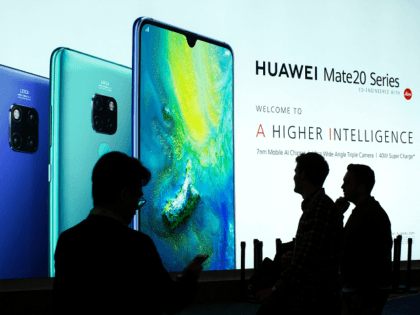
Six retired U.S. defense officials issued a statement on Wednesday warning that European and Asian partners could put American military operations at risk if they use Chinese technology in their 5G networks.
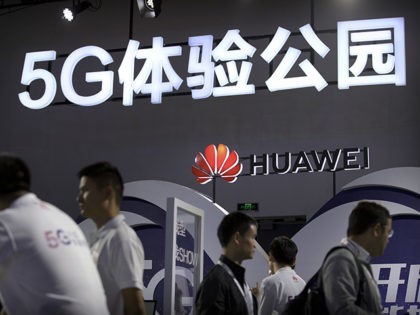
President Donald Trump expects to meet with Chinese President Xi Jinping “probably” in March at Mar-a-Lago, he told reporters at the top of a meeting with Chinese Vice Premier Liu He Friday.
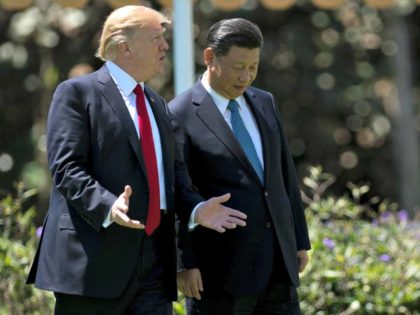
Former Congressman Thaddeus McCotter (R-MI) told Breitbart News that China uses technology and finance as tools to globally project its communist ideology.
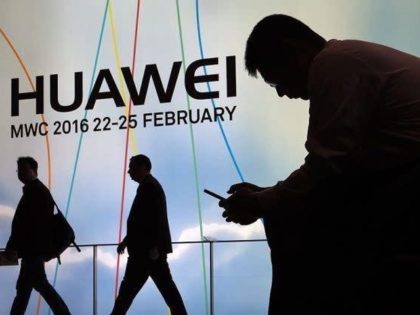
The United States and China are in a race to develop fifth-generation (5G) cellular wireless technology, which could determine who controls mobile telecommunications in the future, and experts and lawmakers warn the U.S. could lose unless the Trump administration does something fast.
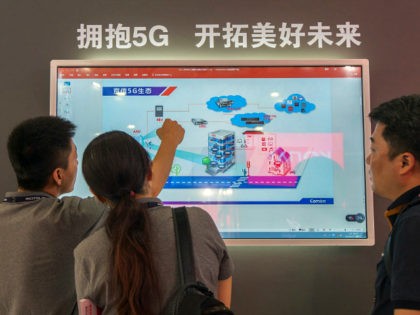
The U.S. government is urging allied nations to avoid using telecommunications equipment from China’s Huawei Technologies Company, even though some of those countries have already made large purchases of Huawei equipment, according to a report published Friday.
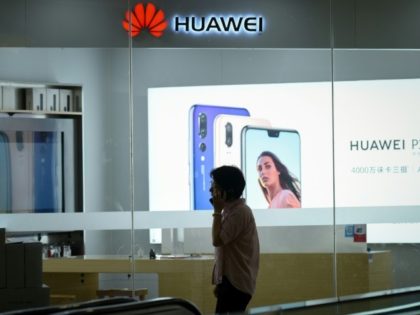
China on Tuesday protested new U.S. export restrictions on tech products targeting Fujian Jinhua Integrated Circuit, a semiconductor manufacturer deemed to pose a “significant risk” to American national security.
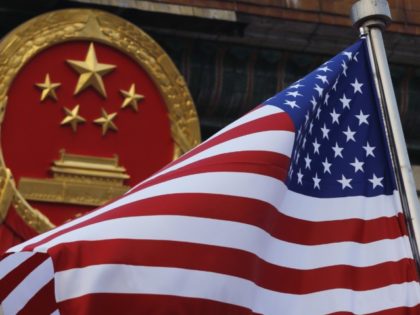
A Chinese electronics company called Hikvision, partly owned by the Communist government, was one of several such firms banned from working for the U.S. government under the National Defense Authorization Act (NDAA) signed into law by President Trump on Monday.
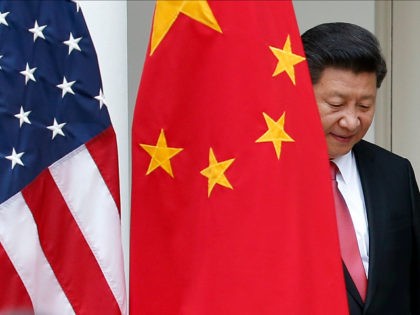
Meet the new boss. Same as the old boss.
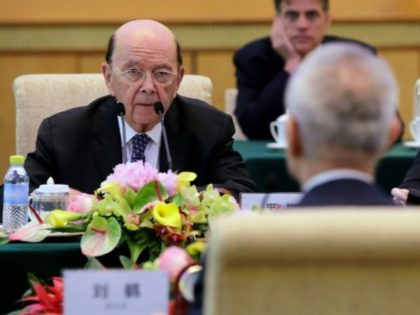
U.S. Senators from both sides of the aisle voted Monday evening to undo a Trump administration Commerce Department deal with Chinese telecommunications firm ZTE.
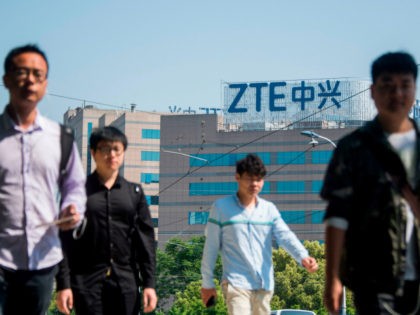
Sen. Marco Rubio’s Road to Majority conference speech on Thursday hinted heavily toward his criticism of the Trump administration’s negotiations with China, warning that American children could inherit a world dominated by the Asian power.

Republican and Democratic Senators have finally found common ground in an unusual place: reversing a Trump administration trade policy they say is too easy on China.
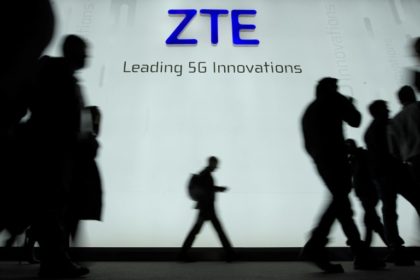
“We still retain the power to shut them down again,” Ross said.
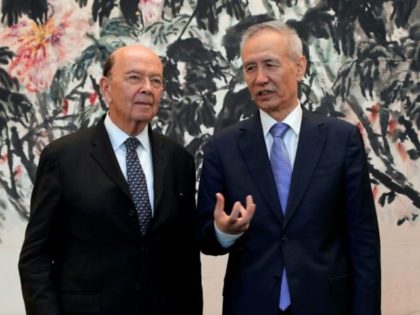
Crashing Chinese telecommunications firm ZTE and the United States have reached a preliminary, but yet unsigned, deal to lift U.S. sanctions on the company, according to Reuters.
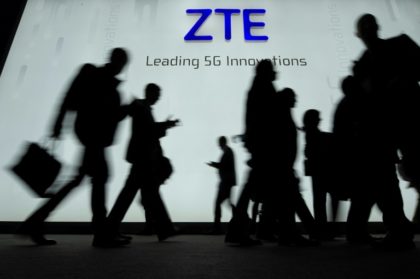
Sunday on CBS’s “Face the Nation,” Sen Marco Rubio (R-FL) said a bill to block Chinese telecommunications equipment company ZTE Corp. from operating in the U.S. would have a supermajority in Congress to override a potential veto by President Donald
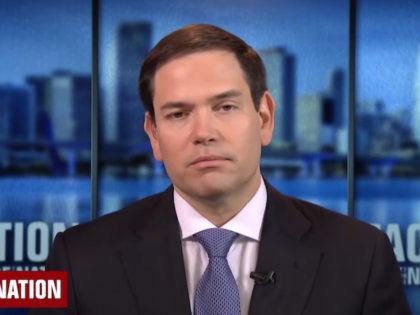
Details emerged Friday of a tentative deal the Trump administration has reached concerning Chinese telecommunications firm ZTE.

Senator Marco Rubio (R-FL) taunted President Trump for being “out-negotiated” by China as the U.S. works to resolve a host of trade issues, ranging from deficit reduction to tariffs.
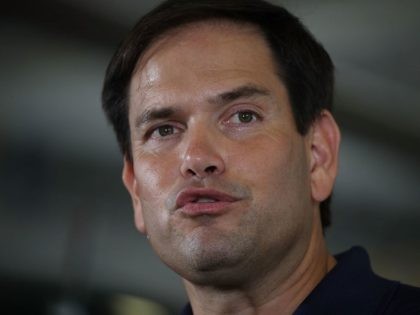
President Donald Trump famously said, “Trade wars are good, and easy to win.” The early results of the last few weeks of negotiations with China suggest that may have been overly optimistic.
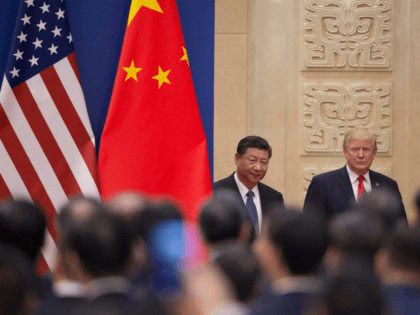
The Trump administration has agreed with China on a broad outline of a plan to save Chinese telecom giant ZTE.

President Trump prompted confusion when he tweeted Sunday about saving a Chinese telecommunications company, ZTE, and Chinese jobs. Here are the top five things you need to know about the ZTE dispute.
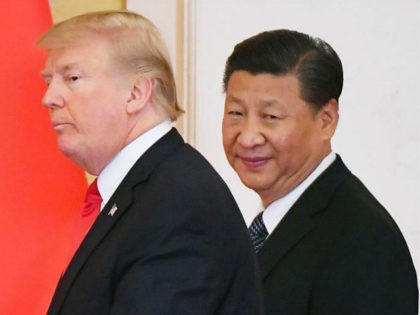
President Donald Trump defended his decision to provide a lifeline to ZTE, denying that he had ‘folded’ to Chinese demands that the administration pull back U.S. penalties.
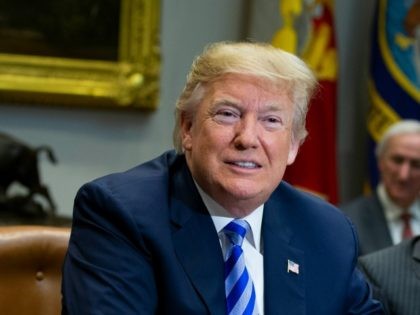
“Beyond appearing to risk American national security, the statement suggests that the Administration is not serious about addressing the many economic challenges China presents,” three Democrat Senators wrote in a letter to Trump Monday.

Donald Trump defended his decision to intervene against U.S. sanctions on Chinese communications technology company ZTE with a tweet explaining that the Chinese company is a big customer of U.S. tech manufacturing companies.
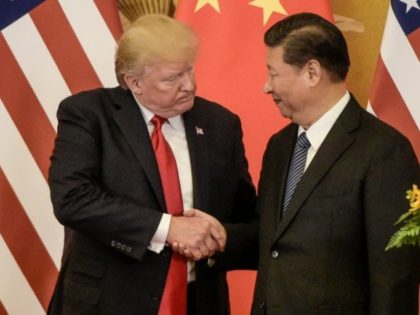
President Donald Trump promised on Sunday to help Chinese telecom company ZTE “get back in business, fast” after a U.S. Commerce Department ban on sales of crucial components to the firm, a punishment for illegally shipping American goods to Iran and North Korea, drove it to the brink of suspending operations.
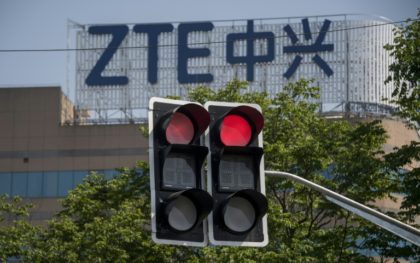
The Defense Department announced on Wednesday it has banned the sale of smartphones made by the Chinese corporations Huawei and ZTE on U.S. military bases, describing them as an “unacceptable risk to the Department’s personnel, information, and mission.”
